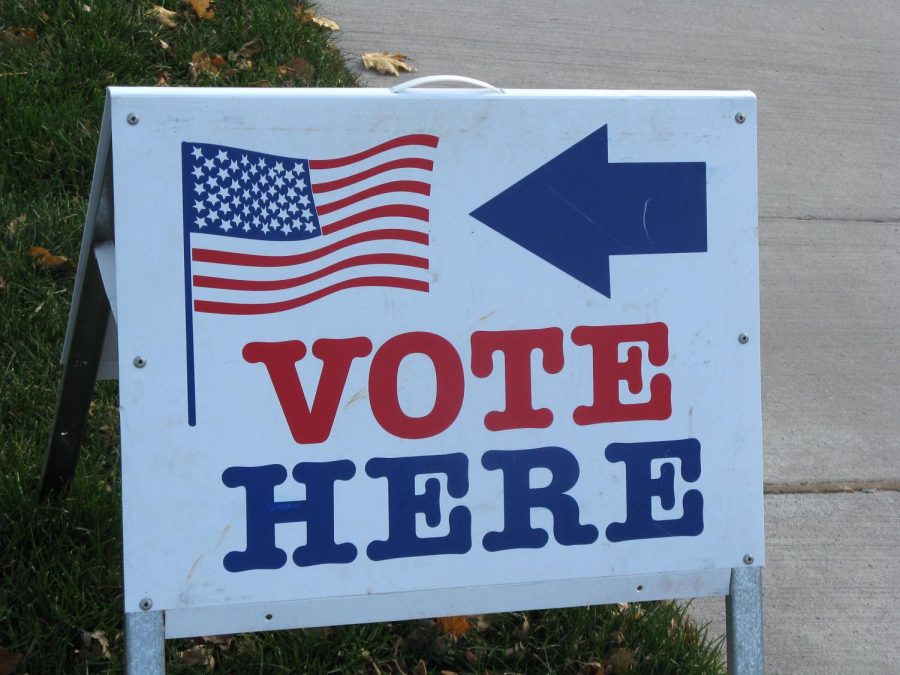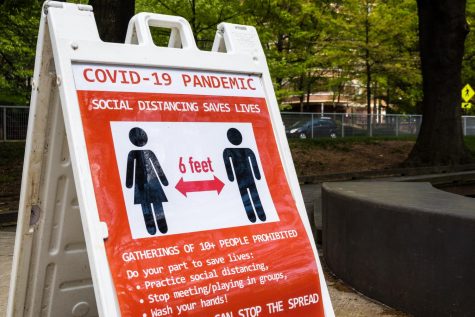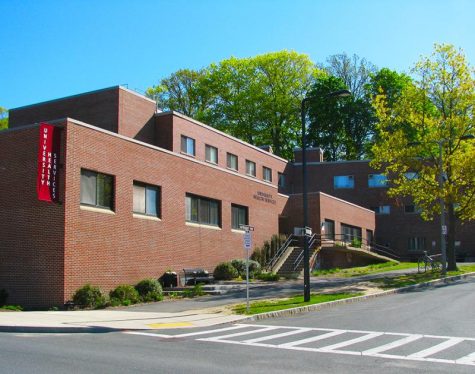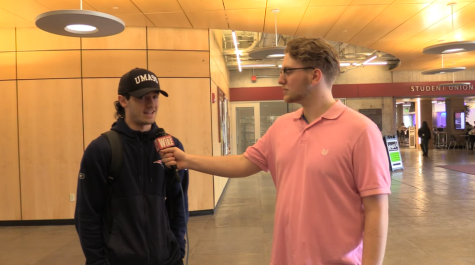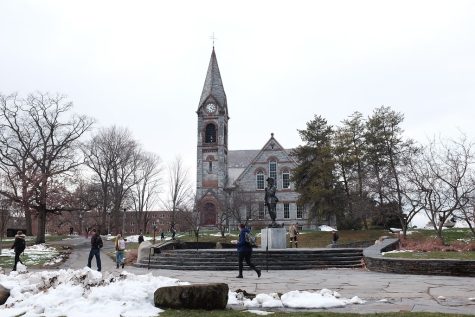Getting to the polls while fighting homelessness
How homeless people in Massachusetts are making their voices heard in the election
For many voters, Election Day portends the beginning of a dreaded 78-day crawl towards Inauguration Day. For Friends of the Homeless, an emergency shelter program of Clinical and Support Options in Springfield, the holiday is cause for celebration.
“Our individuals are oftentimes just trying to keep a roof over their heads, sometimes just figuring out how to show up for meals here is challenging enough,” said Christy O’Brien, the clinical director at Friends of the Homeless.
“There are people who can do all of these things independently, but when your priorities are staying healthy, trying to stay clean, just trying to do some harm reduction and get very basic necessities, figuring out how to get registered for an election or show up on Election Day is not the first thing you’re looking for,” said O’Brien.
The shelter is just one block away from its designated polling place, but Friends still marshalled manpower and resources into guaranteeing that its guests got to cast their ballots in person. The agency registered 76 people in September, and worked with the Springfield Election Committee to distribute educational booklets and sample ballots in English and Spanish.
Guests also received Save the Date cards for Nov. 3, and the agency allocated high passenger vans to transport anyone needing their help on Election Day, including guests at community partner organizations Tapestry Health Systems and Open Door Social Services.
Associate Vice President of Marketing and Development at CSO Geoffrey Oldmixon says community partnerships were essential to broadening the program’s reach, noting that “we’re not going to be advocating for people to vote one way or another, but we do want people to vote.”
“It’s a constitutional right, and, when it isn’t guaranteed, we have to step in and protect it for one another, especially for the most vulnerable,” he said. “It’s important that homeless individuals be able to adapt and move forward, gain housing and reintegrate into society. Voting and representation is just one aspect of that.”
But registering to vote, Oldmixon notes, is not only seen as nonessential for many unhoused community members but as an impossibility. All 50 states require voters to list an address, permanent or otherwise, in their registration application. Addresses are used to assign voters to precincts or voting districts.
Friends of the Homeless is the largest homeless shelter in Massachusetts outside of Boston. It merged with Clinical and Support Options five years ago when it developed FOHITS, or Friends of the Homeless Integrated Treatment Supports. The program offers mental health care and substance use disorder care. This year it encouraged its guests to register to vote using the shelter’s address.
“As an agency, we come from a place of trauma-informed work, so we’re always looking at the individual experience in all the work we do, and doing so in a very stratified way,” said O’Brien, who led the effort to register voters at the shelter.
“There shouldn’t be a sense of hierarchy, that we as housed and employed individuals are somehow at a more elevated position than our guests or any individual experiencing homelessness,” said O’Brien. “I understood that if I had to go out of my way to figure out the mechanics of voting and when to vote and how to vote during a pandemic, even though I have voted before, how much more difficult would that be for our unhoused guests?”
Massachusetts instituted in January a new trellis of automatic voter registration whereby eligible voters conducting certain transactions through the Registry of Motor Vehicles, MassHealth and Commonwealth Health Connector will have their name, address and date of birth sent to their local election official if they do not opt-out of the service.
Medicaid expansions, like the 1115 waiver expansion of 1996, which qualified chronically unemployed residents for Masshealth and doubled the percentage of homeless Masshealth recipients from 30% to 60%, have beneficially affected unaccompanied homeless people for decades.
But the Massachusetts Housing and Shelter Alliance reports that only 10% of the state’s homeless population is composed of chronically homeless individuals, and the COVID-19 pandemic has exacerbated the housing crisis for families who may have never before fallen on hard times.
O’Brien said that “even for families that are registered to vote or have the right documents and identification to be able to streamline that process, the focus isn’t an election when you’re thinking about your next meal.”
“With automatic voter registration–it’s great that the state has taken that initiative– it’s still incumbent on us to not be impervious to voter suppression or lulled into complacency and thinking that our work is done, especially as the pandemic rages onward,” she said.
This summer, volunteers from the Amherst League of Women Voters registered individuals queued up in food distribution lines in the empty parking lot of the Amherst Survival Center. The League has been around since 1939 but was unable to register voters in its usual locations this year, like the library and other public spaces where residents tend to congregate, because of social distancing guidelines.
Chair of voter engagement for the Massachusetts League of Women Voters, Bonnie Isman, said that many of the individuals in line were already registered, and those who weren’t had with them the proper identification to be able to register.
“They were pretty motivated,” Isman said. “We didn’t even have a table where they could fill it out, they would have to fill out the registration form in line, but every time we went someone asked us for a form.”
She said that the financial pressures of the pandemic, which threaten to displace residents facing eviction and foreclosure across the country, compounded with the public health risks of COVID-19 have rendered homeless individuals especially vulnerable.
“A lot of people in Amherst are transient anyway, maybe you have one address one year and a different one another, and the pandemic hasn’t made that housing instability that so many people experience any better,” Isman said. “Election year or not, pandemic or not, it’s important to know your community. It’s important for us to be out there for one another.”
Email Rebeca at [email protected] or follow her on Twitter @RebecaPereiraa

